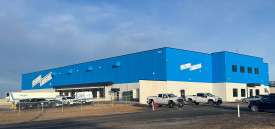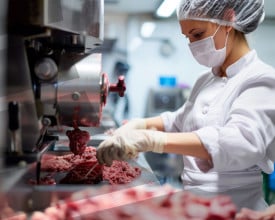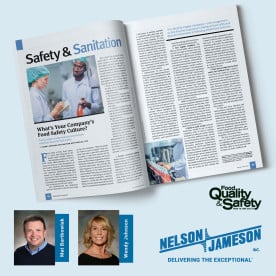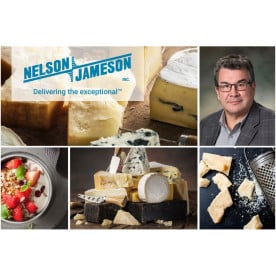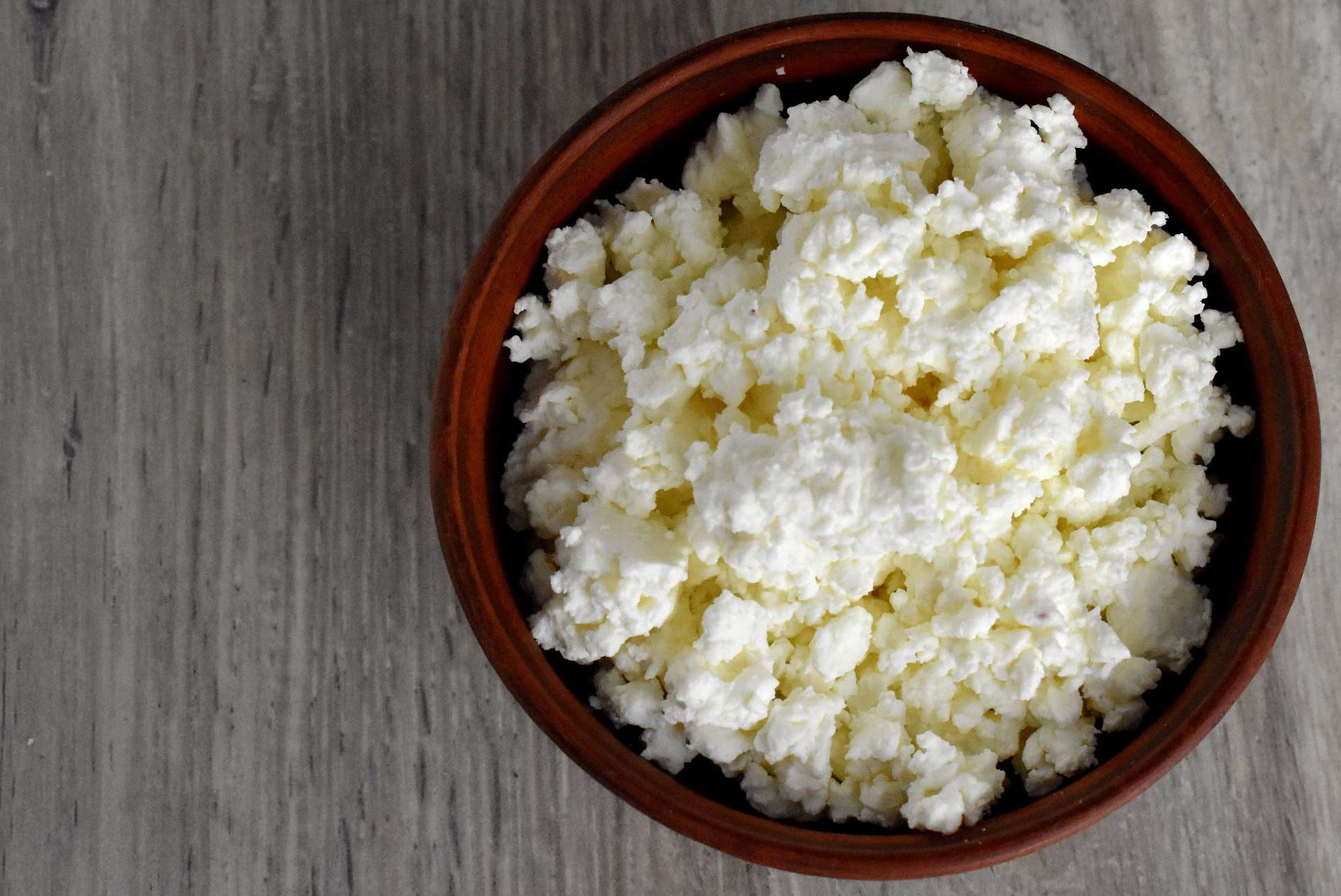
by Steve Funk | Senior Cheese Technologist at Nelson-Jameson
Cultures and enzymes are biological catalysts for dairy product production, but they’re also catalysts for the dairy industry as a whole. These hard-working elements work quietly behind the scenes to strengthen the industry’s brand reputation, increase dairy product market share, and delight consumers.
As the industry continues to adapt to changes and face new and long-standing challenges, cultures and enzymes help dairy advocates respond with answers. The trend toward plant-based alternatives is answered with vegetarian enzymes. Interest in health and wellness is answered with cultures that stimulate the probiotic benefits of yogurts, kefirs, and other cultured dairy. Here are five ways that cultures and enzymes are helping dairy processors.
Consumer Trends: Year after year, dairy processors aim to strike a balance between tradition and innovation. Consumers count on the availability of their favorite dairy products, but they also want new flavors and formats. Cultures and enzymes keep consumers happy by providing consistently produced dairy staples as well as inventive products that introduce new tastes and textures. They can also impact how well a cheese melts, browns, or blends, providing additional variety to culinary usages.

Food Safety: The use of cultures and enzymes is increasing because of its success in maintaining the integrity of dairy products and enhancing food safety. New bioprotective cultures can replace chemical preservatives, providing consumers and suppliers with preservative-free products that also have better shelf stability. Of course, cultures and enzymes are not a substitute for other safety protocols, such as knowing your milk source, understanding plant sanitation, and carefully following all steps in a cleaning process. Still, ongoing advances in cultures and enzymes allow dairy processors to inhibit yeast and mold growth, prevent spoilage, and better protect their products.
Health and Wellness: Ongoing demand for the gut-health benefits of probiotics continues to keep yogurt at the top of cultured dairy sales. Cultures and enzymes also support other health-driven consumer preferences such as reducing lactose or increasing organic consumption. Beyond product features, the health and wellness benefits of cultured dairy enhance awareness of and interest in dairy as a category and its place in the famous food pyramid.
Food innovation: Industry scientists continue to find new pathways for cultures and enzymes. Product developers can use a 50-year-old, patented culture and/or a novel culture developed within the last year to expand a product line – the old and new work in tandem with each other. Technical experts are creating new avenues for culture and enzyme usage, such as the use of non-traditional cultures to transform the effects in long-standing cheeses. Dairy processing operations benefit from culture and enzyme innovations as well. They can be added to help accelerate production or make it easier to utilize equipment.
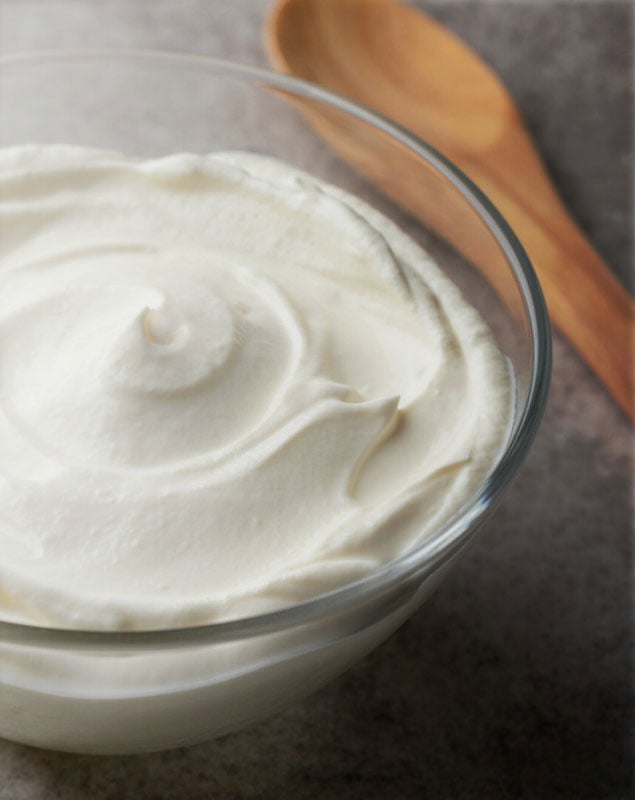
Brand Strength: As dairy processors utilize cultures and enzymes to enhance product uniqueness, satisfy consumers, and find creative solutions to challenges, a bonus result is industry brand strength. Consumers stay engaged with a food & beverage category when it’s both consistent and innovative, and fosters trust in food safety and health benefits. In turn, this brand strength bolsters marketing and selling opportunities.
Cultures and enzymes continue to be the workhorses of cultured dairy products, but they’re also indirect lobbyists for the industry. Dairy processors can benefit from continued focus on the role of cultures and enzymes in all aspects of production.
If you need more insight on enzymes for your dairy product production, contact the experts at Nelson-Jameson (www.nelsonjameson.com).
About Steve Funk

Steve Funk is Senior Cheese Technologist at Nelson-Jameson. As a passionate dairy industry veteran with more than 40 years of experience, he provides customers with advice on ingredients, production processes, and manufacturing improvements to enhance cheese and fermented dairy product results. His innovative approach to quality cheese-making has helped dozens of customers create and launch unique cheese recipes that are market favorites today. Steve is an active member of numerous dairy industry associations and serves as a WDPA representative on the prestigious Master Cheesemakers Board. He supports the next generation of dairy innovators by serving as a NE-DBIC Dairy Processor Expansion Grant reviewer and a mentor for its Northeastern Dairy Product Innovation Competition, an inaugural program managed by Cornell University’s Center for Regional Economic Advancement and the Northeast Dairy Foods Research Center. He holds a B.S. in Dairy Science and Animal Health from the University of Vermont. When not at work, he enjoys skiing, kayaking, gardening, and spending time with his wife of 38 years, Carla, and their daughter and grandson.

